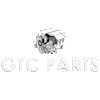- europages
- >
- COMPANIES - SUPPLIERS - SERVICE PROVIDERS
- >
- glass collection containers
Results for
Glass collection containers - United Kingdom
United Kingdom
Interactive map of the field
Most viewed companies in the sector
Filters
Results for
Glass collection containers - United KingdomNumber of results
2 CompaniesCompany type



